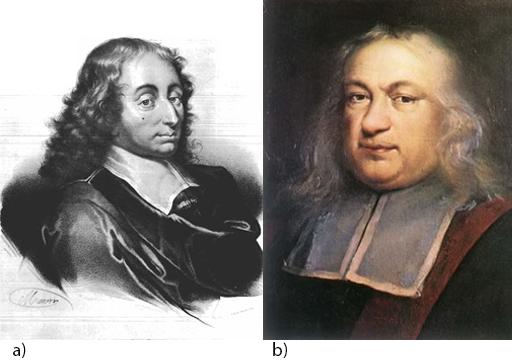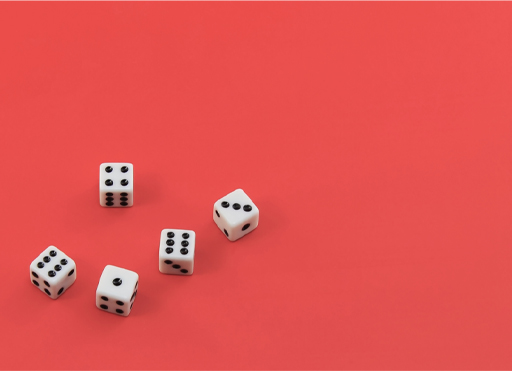1 Chance
Games of chance – especially those involving the rolling of dice or similar objects – have a long history, dating back centuries across many different cultures. However, it is only in more recent times that games of chance have been analysed mathematically, with some very interesting and powerful mathematics developing as a result, in the area now known as probability theory. The correspondence between two 17th century French mathematicians, Blaise Pascal and Pierre de Fermat, about a problem connected with a dice game is now considered a seminal moment in this development. The problem in question, known as the ‘problem of points’, concerns the fair division of stakes should a dice game be interrupted before a player has won.
You will look at this problem shortly. First, some concepts in probability theory will be discussed. In what follows, it shall be assumed that a die is a perfect cube with each one of its six sides having a different number of spots on it, ranging from 1 to 6.


